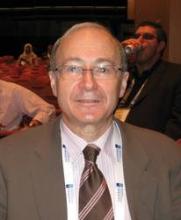The Food and Drug Administration expects to issue its guidance on biosimilars by the end of 2011, more than a year after legislation designed to make cheaper generic versions of therapeutic biologics available was incorporated into the Patient Protection and Affordable Care Act of 2010.
A year earlier, the Biologics Price Competition and Innovation Act of 2009 (BPCI) established an abbreviated approval pathway for biological products that are shown to be "highly similar" or "biosimilar" to, or "interchangeable" with, an FDA-approved biological product, according to the FDA's summary of the legislation.
The complex issues related to its implementation are still being worked out by a special committee at the agency, which met in November 2010 to discuss the issues and challenges of implementing the BPCI Act. Manufacturers of biologic therapeutics, generic pharmaceutical companies, patient groups, and other interested parties provided their input at that meeting.
An FDA spokesperson said that the agency "continues to carefully review and consider all comments from the November 2010 hearing and from the docket as we move forward in our implementation" of the statute. Biosimilars are also referred to as "follow-on biologics."
Of the major biologics, etanercept (Enbrel) will be the first to lose its patent, in 2012.
Dr. Steven Kozlowski, director of the FDA's Office of Biotechnology Products, and other FDA officials noted that access to expensive biologic therapies "may be limited, not infrequently because of their cost" and emphasized the challenges the agency faced in implementing the act in a "Perspective" article published online on Aug. 4 in the New England Journal of Medicine (2011;365:385-8).
The coauthors of the article, "Developing the Nation's Biosimilar Program," were Dr. Janet Woodcock, director of the FDA's Center for Drug Evaluation and Research; Dr. Karen Midthun, director of the Center for Biologics Evaluation and Research; and Dr. Rachel Behrman Sherman, director of the Office of Medical Policy.
"Reconciling the science of biosimilar development with the new regulatory framework required by the BPCI Act presents the FDA with numerous challenges," primarily, establishing scientific criteria "that address the key question: how similar is similar enough when it comes to the substitution of complex biologic drug products in clinical practice?" They cited immunogenicity as "a critical factor" when evaluating biosimilars, and noted that product-specific safety monitoring should be included in the process.
For now, it remains difficult to predict when these more affordable generic formulations of the expensive biologic treatments for inflammatory diseases will become available.
A spokesperson for the Generic Pharmaceutical Association (GPhA) said that the legislation left a lot to the FDA's discretion. FDA's regulations must not be burdensome and should not create barriers to making these products available, he said. "Ultimately, we want patients to have access to these drugs at affordable prices." A representative of the GPhA made a presentation at the November 2010 meeting and submitted formal comments to the docket in December.
In the dermatology arena, biosimilars would be welcomed primarily because of cost savings for patients and increased access to these effective treatments, said Dr. Mark G. Lebwohl, professor and chairman of the department of dermatology at Mount Sinai School of Medicine, N.Y.
Biosimilars will not be identical to the drugs they replace, "and when tested, they will have to come into a certain narrow window of similarity in terms of both safety and side effects," he said in an interview. The dilemma with the side effect profile is that it may not be fully characterized for years and, in terms of effectiveness, "the dilemma is that they have to be approximately equal to the drug that it is replacing."
For example, a biosimilar for etanercept that is 10% less effective than the original product could make a difference clinically. A biosimilar could conceivably work better than the biologic drug it is replacing, but "if it is too much more effective, it’s not a biosimilar and will have to through a new drug application." Moreover, if it is more effective, it might be more immunosuppressive, raising concerns about more side effects, Dr. Lebwohl pointed out.
Dr. Lebwohl disclosed that he has been an investigator for and the department of dermatology at Mount Sinai has received funds from most of the manufacturers of biologics for psoriasis.
More on the BPCI Act is available on the FDA website.


